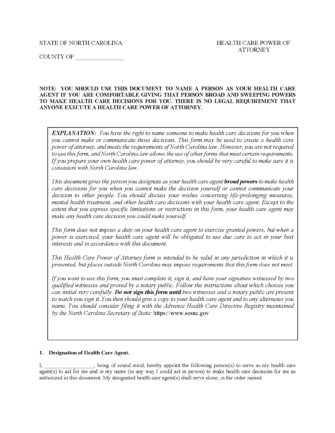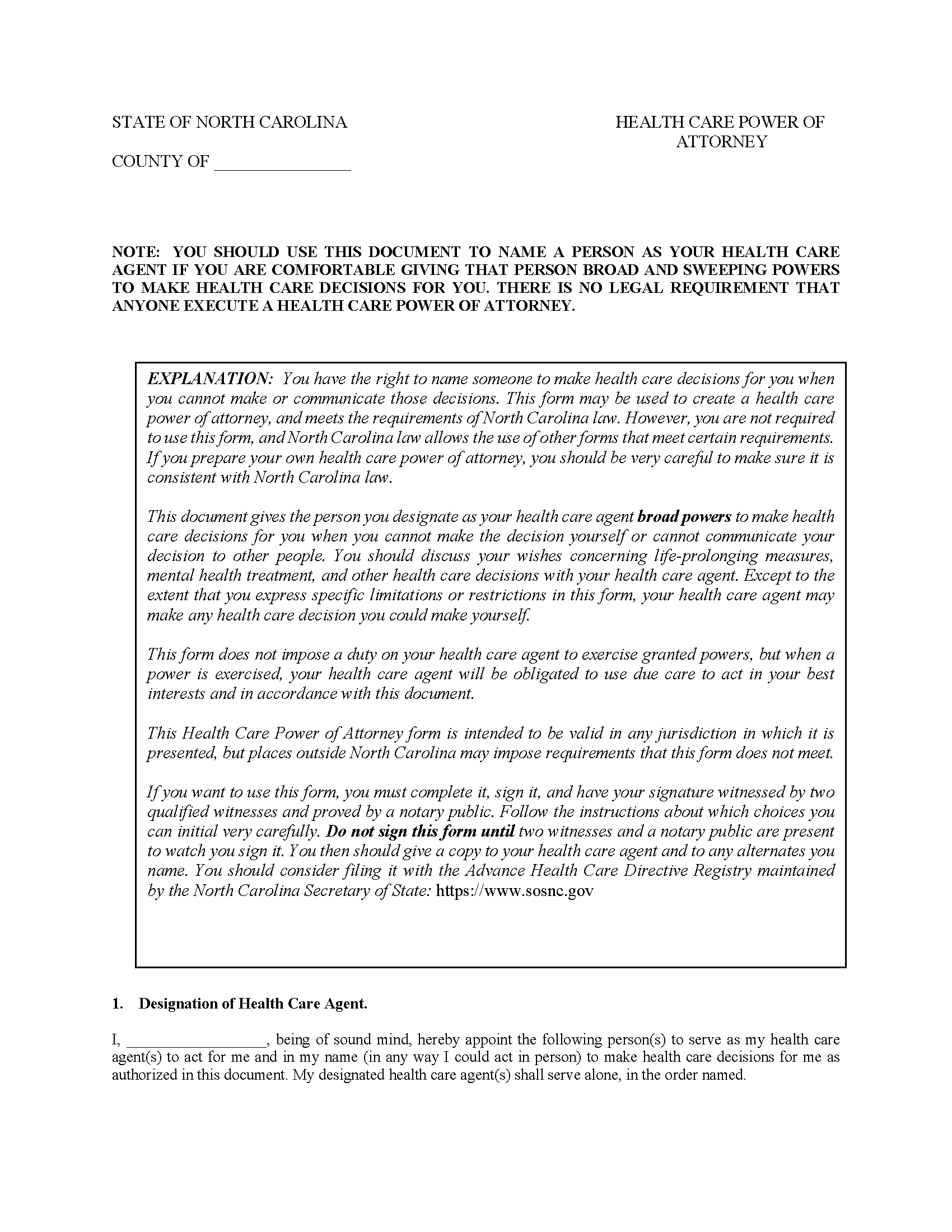Signing Requirements
Medical powers of attorney in North Carolina must be signed by the principal in the presence of two witnesses and acknowledged before a notary public.[1]
The witnesses must not be[2]:
- Related to the principal or their spouse within the third-degree.
- Entitled to or have a claim against the principal’s estate.
- The principal’s physician or mental health provider, and not an employee of the physician, mental health provider, healthcare facility, nursing home, or any medical institution where the principal is receiving care.
Power of Attorney (Preview)
Legal Definition
Health care power of attorney. – Except as provided in G.S. 32A-16.1, a written instrument that substantially meets the requirements of this Article, that is signed in the presence of two qualified witnesses, and acknowledged before a notary public, pursuant to which an attorney-in-fact or agent is appointed to act for the principal in matters relating to the health care of the principal.[3]
Revocation
A medical power of attorney is automatically revoked upon the principal’s death. As long as they are capable of making sound decisions, they can also revoke their POA by performing any of the following acts[4]:
- Executing a written revocation
- Executing a new medical POA
- Communicating the intent to revoke in any other manner
For the revocation to take effect, the principal must notify their agent(s) and attending physician or an eligible psychologist.
When the principal has appointed their spouse as attorney-in-fact and they get divorced or separated, the spouse’s appointment will be revoked.[5]

